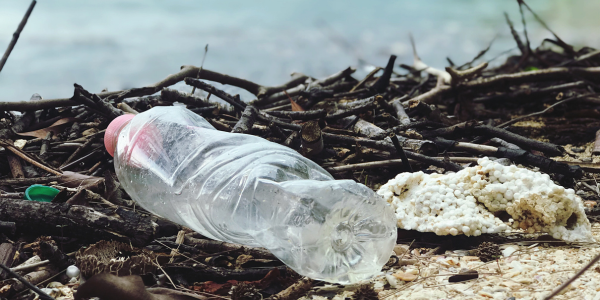The Plastic Soup
We've only been familiar with the term 'plastic soup' for twenty-five years. Every year, humanity produces more and more plastic, which ends up all over the world: the prediction is that by 2025, we will produce around 600 million tonnes of plastic. Extensive research is being conducted into the effects of this plastic on the climate and our health. Additionally, methods are being developed to clean up this enormous amount of plastic waste. Beaches are being cleared, and plastic is being filtered from rivers and seas.
One problem with these methods of plastic collection is that it still ends up in landfills afterward. Because plastic is not biodegradable, it can remain there for hundreds of years. In this way, the problem is not solved but merely displaced. But perhaps microbes are the solution!
Genetically Modified Bacteria
Researchers at North Carolina State University have cultivated genetically modified bacteria that can efficiently break down the plastic polyethylene terephthalate, known as PET. They used two types of bacteria for this purpose: Ideonella sakaiensis and Vibrio natriegens. The former is known for producing enzymes that can break down PET, while the latter can reproduce quickly and efficiently. The researchers isolated the DNA from I. sakaiensis responsible for the production of these enzymes and added it to V. natriegens. The result? Rapidly reproducing bacteria that break down plastic. This is the first time researchers have succeeded in getting V. natriegens to produce these enzymes.
Bacteria as Allies
So, this research is very promising: who knows, these bacteria might play a significant role in cleaning up seawater and dealing with the plastic soup. For this to happen, genetically modified V. natriegens must produce a stable amount of enzymes. To achieve this, it needs to be investigated how the DNA fragment from I. sakaiensis can be integrated into the DNA of V. natriegens as a standard, instead of the current method of adding the DNA in a separate ring to the bacterium.
Additionally, it would also be beneficial if the substances in which PET is broken down could be used as raw materials for industries, for example. This way, an enormous waste stream is recycled in an environmentally friendly manner! And this is just one of the many developments where the microscopic world of microbiology can be used to solve major global problems.
Source: Li, T., Menegatti, S., & Crook, N. (2023). Breakdown of polyethylene therepthalate microplastics under saltwater conditions using engineered Vibrio natriegens. AIChE Journal, e18228.
Autor: Noa Hudepol

